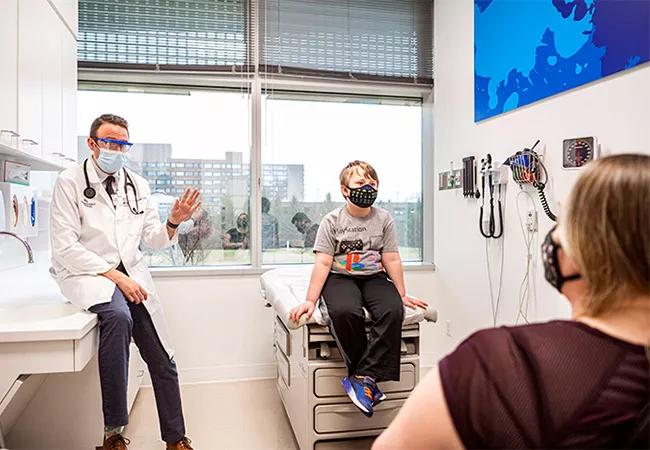New funding supports testicular tissue cryopreservation (TTC) research efforts

Cleveland Clinic urologists and pediatric oncologists teamed up to create a protocol for the collection and storage of testicular tissue from prepubescent males undergoing gonadotoxic treatments.
Advertisement
Cleveland Clinic is a non-profit academic medical center. Advertising on our site helps support our mission. We do not endorse non-Cleveland Clinic products or services. Policy
Preclinical studies have shown that autologous transplantation of spermatogonial stem cells (SSCs) from TTC has the potential to restore spermatogenesis in animal models. While semen cryopreservation is the standard of care in postpubertal boys and adult men at risk for infertility following gonadotoxic treatment, no options currently exist for prepubescent boys not yet producing sperm.
Sarah Vij, MD, a urologist in Cleveland Clinic’s Glickman Urological & Kidney Institute, is leading the investigation alongside, Audrey Rhee, MD, a pediatric urologist, also of the Glickman Institute, and Seth Rotz, MD, and Stefanie Thomas, MD, pediatric oncologists in Cleveland Clinic Children’s.
Dr. Vij, who leads Cleveland Clinic’s Center for Male Fertility, says their goal is to develop a streamlined storage process and have the tissue available for future use when research and technologies have advanced enough to support transplantation of SSC. “Although we do not yet have formal protocols to develop sperm from spermatogonial stem cells in humans, there is hope that this will be available by the time these children are ready to grow their families,” she says
The primary aims of the study are as follows:
Advertisement
Advances in pediatric cancer treatment have led to a greater than 80% survival rate at least five years post-treatment. As a result, it’s critical to manage the longer-term effects of cancer treatment on quality of life. This, of course, includes fertility, explains Dr. Rotz. He leads the Fertility Preservation Program at Cleveland Clinic Children’s.
Every patient encounter is different, and age, sex, and treatment are all variables that shape the fertility-preserving conversation, he says. “Regardless of the patient’s age, our goal is to have a conversation about fertility and infertility and potential fertility preservation options with all of our new cancer diagnosis patients before we start therapy. It’s never too early.”
He continues, “For some patients and families, having that conversation about fertility can provide some solace. You’re talking about life after treatment, which can be a hopeful dialogue and alleviate some distress, as difficult as those conversations may be.”
The team hopes to capture this data systematically to understand the association between parent experience measures and determine if TTC plays a role in reducing parental distress and/or increases parental hope.
“Yes, TTC is still experimental. It’s still in the research realm, but the data published about its utility in primates is promising. We’re not quite there yet in humans, but I think we will be. The science is moving really quickly,” says Dr. Vij.
The VeloSano Impact Award will support this work and offer collection at no cost to patients. “We are really excited about this and again hope that we can offer it soon.”
Advertisement
Advertisement

Early results show strong clinical benefit rates

The shifting role of cell therapy and steroids in the relapsed/refractory setting

Radiation therapy helped shrink hand nodules and improve functionality

Standard of care is linked to better outcomes, but disease recurrence and other risk factors often drive alternative approaches

Phase 1 study demonstrates immune response in three quarters of patients with triple-negative breast cancer

Multidisciplinary teams bring pathological and clinical expertise

Genetic variants exist irrespective of family history or other contributing factors

Study shows significantly reduced risk of mortality and disease complications in patients receiving GLP-1 agonists